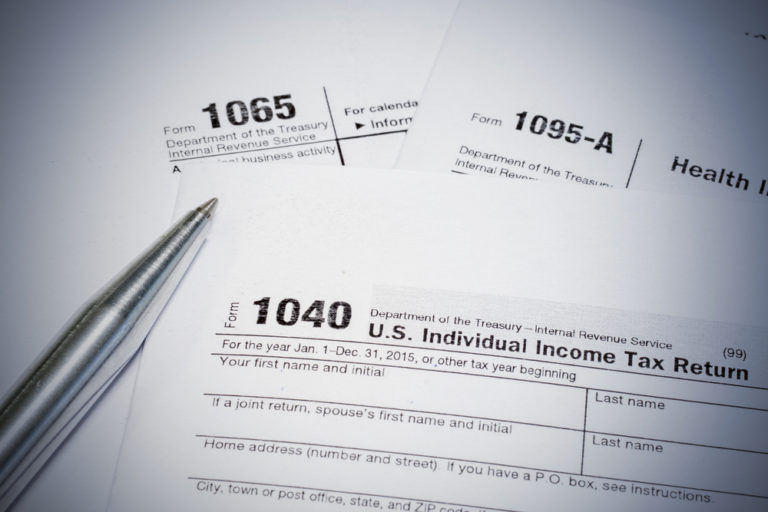The task of gathering everything you need to prepare your annual tax return may be either simple and yawn-worthy or tedious and time-consuming. Your financial condition may influence how you feel about filing your taxes. If you're single, rent your house, and work one job, you can probably yawn, but if you're married, a single parent with at least one of your children living at home, have investments, are self-employed, or work numerous jobs, you'll have to devote some effort to the filing process. Each of the latter cases will necessitate the collecting of several papers. We've produced a checklist that you can download and print to assist you in finding and gathering the information and papers you'll need to file your taxes.
Income Documents
The Internal Revenue Service (IRS) already knows how much money you made last year; all it needs is for you to certify it on your tax return. Anyone who paid you more than $600 throughout the year is obliged to submit an information return with the IRS, normally no later than January 31 of the following year. In the event of royalties or broker payments, the threshold is only $10. You should get a copy of this paperwork to help you prepare your tax return. Depending on the sort of income you receive, these information returns take various forms. If you have regular employment, you will get a Form W-2 from your employer or employers. You would receive one from each of your employers if you worked for more than one throughout the year. This form summarizes your earnings and the amount of income tax taken from your salary and forwarded to the IRS on your behalf. Form 1099-NEC shows how much money you made as a non-employee if you were paid for any job you accomplished or services you provided as an independent contractor or single entrepreneur. If you received income from any of these sources but did not receive a supporting information return, contact the organization that paid you or your employer in the case of a Form W-2. You can also get copies from the IRS. The IRS website has a complete array of 1099 forms.Documents That Support Tax Deductions
Identifying the documentation required to claim some tax deductions can be a time-consuming task. You should have been collecting them all year when you paid specific bills. You do not have to disclose your receipts to the IRS until you are audited, but you will need them to determine how much you may claim for certain deductions, so keep them on hand just in case. While you can take the simple route and simply claim the standard deduction for your filing status, if you choose to itemize, you'll need to know how much you spent on qualified expenditures. Charitable contributions, state and local property and income taxes, medical expenditures, and health insurance are all common itemized deductions. Schedule A contains a complete list of potential itemized deductions, which you must complete and submit with your tax return if you want to itemize.Above-the-Line Adjustments to Income
Above-the-line deductions, often known as adjustments to income, do not require itemization. These can be claimed on Schedule 1 of your tax return, along with the standard deduction or the amount of your itemized deductions. For these costs, you should obtain a Form 1098. There are two typical 1098 forms:- Form 1098: For mortgage interest paid on a qualifying home loan
- Form 1098-E: For interest paid on student loans
Self-Employment Income
Receipts are especially necessary if you get 1099-NEC revenue as an independent contractor. Provided this is the case, you can deduct a wide range of business costs on Schedule C if they are "ordinary and essential" for doing business. Again, you are not required to submit these records to the IRS, but you will need the evidence to substantiate them and produce your Schedule C.Documents for Claiming Tax Credits
Tax credits are preferable to deductions since they immediately decrease what you owe the IRS, whereas tax deductions simply reduce your taxable income. Some tax credits, most notably those offered for schooling, will need you to get a Form 1098 for the paid costs before you can claim them. You should keep accurate records of your spending prior to tax season so that you can justify claiming other credits. Some tax credits need proof of income as well as a tax return.- Among the more well-known individual tax credits available for the 2021 tax year are:
- Adoption credit: For a portion of the costs of adopting an eligible child. American opportunity and lifetime learning credit: Form 1098-T is used to record eligible educational costs for you, your spouse, or your dependents to you and the IRS.
- Credit for child and dependent care: For costs, you paid for care for your kid or disabled dependents by another person so you could work, search for jobs, or attend school—you'll need the care provider's tax identification number or Social Security number.
- Child tax credit and other dependents credit: You can claim each individual as a dependent on your tax return.
- Credit for the aged or disabled: For individuals 65 and older or those who resigned due to permanent or complete incapacity
- Earned income tax credit (EITC): For lower-income taxpayers (income limits apply)
- Credit for recovery rebates: For economic stimulus payments you were due in 2021 but did not get Saver's credit: Contributions to qualified retirement plans


